
Employee Engages In Malicious Compliance To Show Their Superior That Micromanaging Is Not The Answer
Hardly anyone likes being monitored at all times and told what to do at any given moment. That’s why few people have the patience to deal with a micromanaging boss.
Redditor u/No-Language-7256 didn’t. He told the ‘Malicious Compliance’ community that he did, however, obey all the micromanaging superior’s orders. Unfortunately, that didn’t end well for the latter as the performance started dropping and even more higher-ranking managers took notice. Scroll down for the story in the OP’s own words.
For insight on how micromanaging can affect an employee and how best to deal with it, Bored Panda turned to associate dean of diversity, equity and inclusion and associate professor of management at the College of Business Administration at Loyola Marymount University, Patricia G. Martinez, who was kind enough to answer a few of our questions.
Hardly anyone enjoys being micromanaged at work
Image credits: Antoni Shkraba (not the actual photo)
This person had to deal with a micromanaging superior, which led to an act of malicious compliance
Image credits: Mizuno K (not the actual photo)
Image credits: No-Language-7256
The OP is far from the only employee that has had to work with a micromanager at some point in their careers
“While managers may find themselves having to provide very close direction to employees with performance issues (particularly if the employee indeed lacks some of the minimum required job skills), micromanaging can significantly decrease an employee’s decision-making ability,” Dr. Martinez told Bored Panda.
“There are decades of research which support the idea that decision-making ability is related to many of the positive performance and attitude outcomes which we associate with ‘being motivated’, including job satisfaction, psychological empowerment, feeling challenged, perceiving that your boss (and potentially the organization) supports you, as well as different dimensions of wellness (lower stress, anxiety).”
Forbes reported that nearly 80% of employed people have experienced micromanaging at some point in their careers. Quite large numbers of employees felt the negative effects of this type of management on their work performance and morale—71% and 85% respectively. Moreover, such attentive monitoring has led 69% of workers to consider leaving their place of employment, and has actually sent more than a third out the door.
Such numbers show that there are definitely quite a few superiors who take it one step too far with watching over their employees. While some hover over their shoulder quite literally, others micromanage their teams remotely—arguably quite a relevant problem during the Covid period spent working from home. Statista revealed that back in 2020, as much as 64% of employed people in the US felt micromanaged working remotely.
Image credits: Anna Shvets (not the actual photo)
Micromanaging can have detrimental effects on the employees and the company itself
Garner’s VP Analyst, Daniel Sanchez Reina, suggested that some micromanagers feel like they can’t trust their employees to perform their tasks while away from the office. This leads to a vicious circle, starting with lack of trust and ending in a high turnover rate, before another round on the same merry-go-round begins. In between lack of trust and the turnover rate, there is also lack of employee engagement and a decrease in productivity, linked to them only doing what they are asked to do—which is exactly what the OP did.
Deskbird also emphasized certain negative psychological effects micromanaging has on employees, as well as detrimental effects to the company itself. The former include loss of creativity, confidence, and close connection with people in the company, while the latter entail a rise in manager and employee burnout and decrease in productivity, among other things.
Acuity Training pointed out that autonomy is one of the main driving forces for employees, which tends to disappear the moment a micromanager enters the room. However, it also suggested that some overly attentive superiors don’t even realize the effect their management style has on employees, as they might consider themselves simply more detail-oriented. According to Acuity Training, people that are most inclined to micromanage their teams often display fear-based characteristics, such as uneasiness about losing control, the need to be an authoritative figure, or angst about their work being of subpar quality.
“Managers may micromanage due to a number of reasons,” Patricia G. Martinez, Ph.D., pointed out. “For example, they were previously ‘burned’ when they gave someone more discretion and that person did not perform well, the manager has a disposition with a high need for control, the manager may not realize that you have the skill set to do more autonomous work, etc.”
It is unclear what drove the OP’s superior to become a micromanager, but the redditor found a way to deal with her, all the while remaining a compliant employee. Dr. Martinez suggested that another way to deal with a micromanager is to come at them with data: “Think about one or two situations where they micromanaged you but you believe that you have the appropriate level of knowledge, skills and abilities to do the job appropriately. Make a short, specific list with examples of why you believe you could have made that decision, developed that plan, been given more discretion. And make a case for how having been given more of that latitude would have helped your manager.”
Image credits: Ron Lach (not the actual photo)
People shared opinions and similar personal stories in the comments
Govt job, I see it's the same in Aus as other places, if anything, I'm surprised she was not able to get promoted, I've definitely been places where they get rid of incompetence through promotions
Load More Replies...Well, that just shows what our taxes pay for - if she's still mucking things up after many years, why the heck hasn't she been fired. Business (as opposed to governmint) would have got rid of dead wood.
Yes, there are no terrible middle managers in business who get to mark time for decades. What? Oh.
Load More Replies...I quit a good job because of a micromanaging boss. Would call me, assign a task, call back 15 minutes later and change it. I'm definitely an independent worker, and I just couldn't take her.
Govt job, I see it's the same in Aus as other places, if anything, I'm surprised she was not able to get promoted, I've definitely been places where they get rid of incompetence through promotions
Load More Replies...Well, that just shows what our taxes pay for - if she's still mucking things up after many years, why the heck hasn't she been fired. Business (as opposed to governmint) would have got rid of dead wood.
Yes, there are no terrible middle managers in business who get to mark time for decades. What? Oh.
Load More Replies...I quit a good job because of a micromanaging boss. Would call me, assign a task, call back 15 minutes later and change it. I'm definitely an independent worker, and I just couldn't take her.

 Dark Mode
Dark Mode 

 No fees, cancel anytime
No fees, cancel anytime 







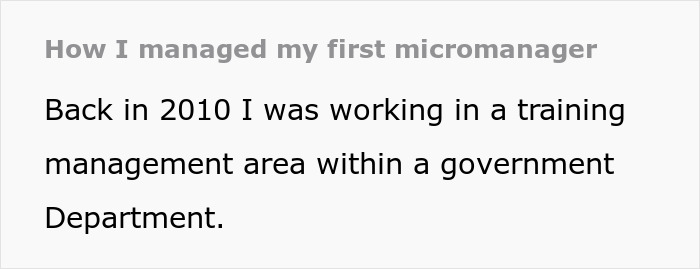
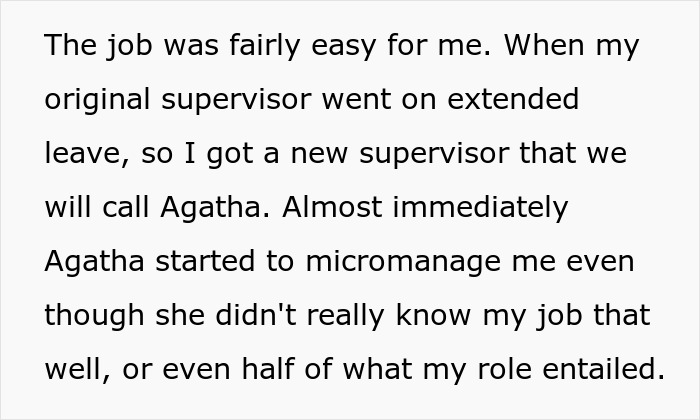
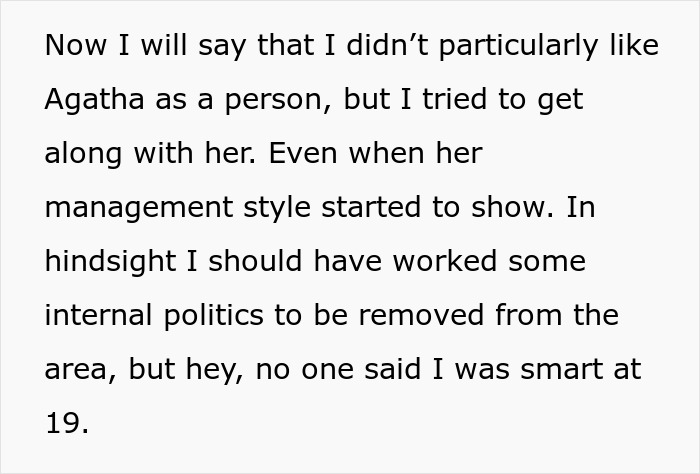
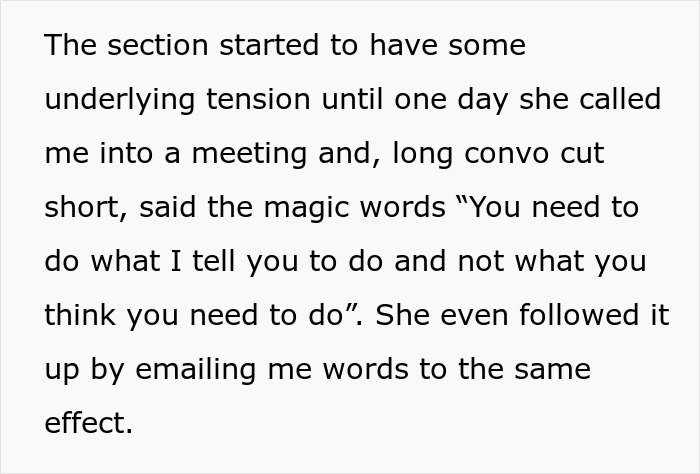
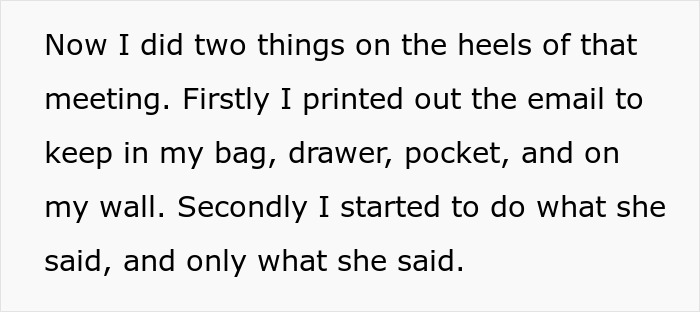
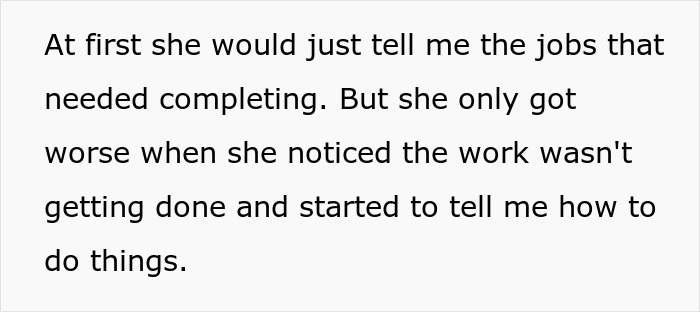
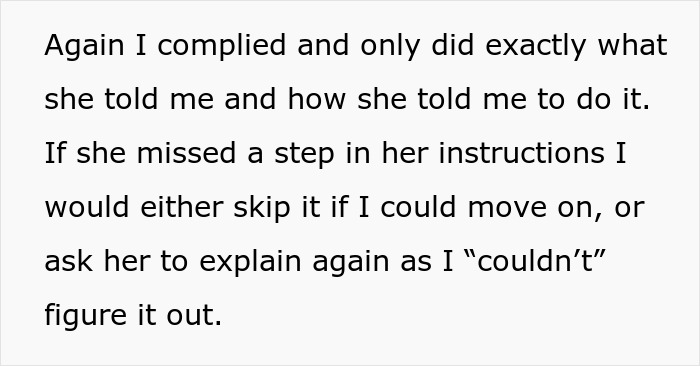

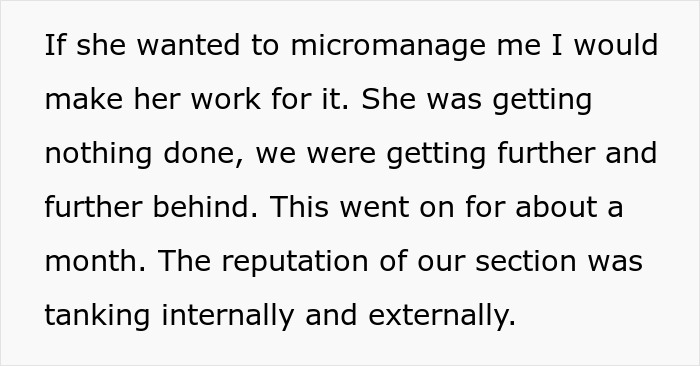




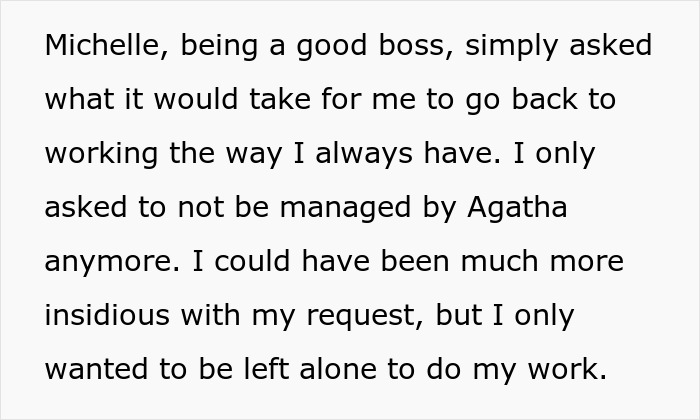



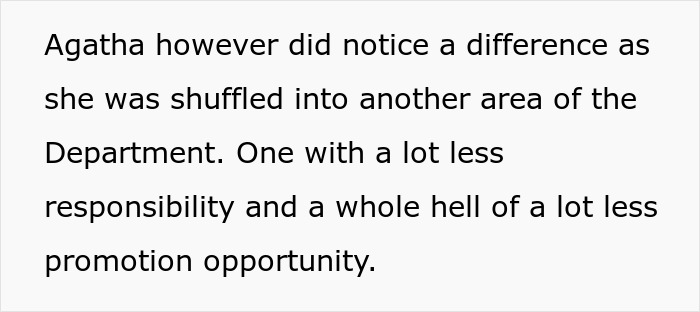

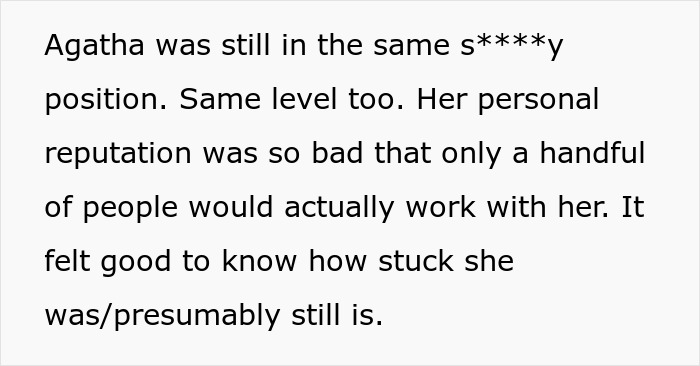





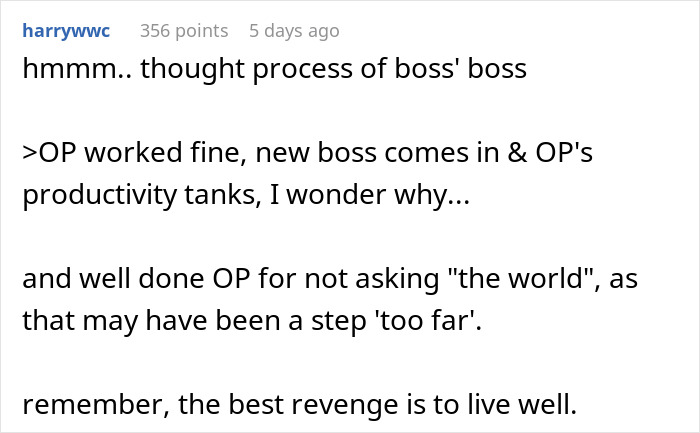

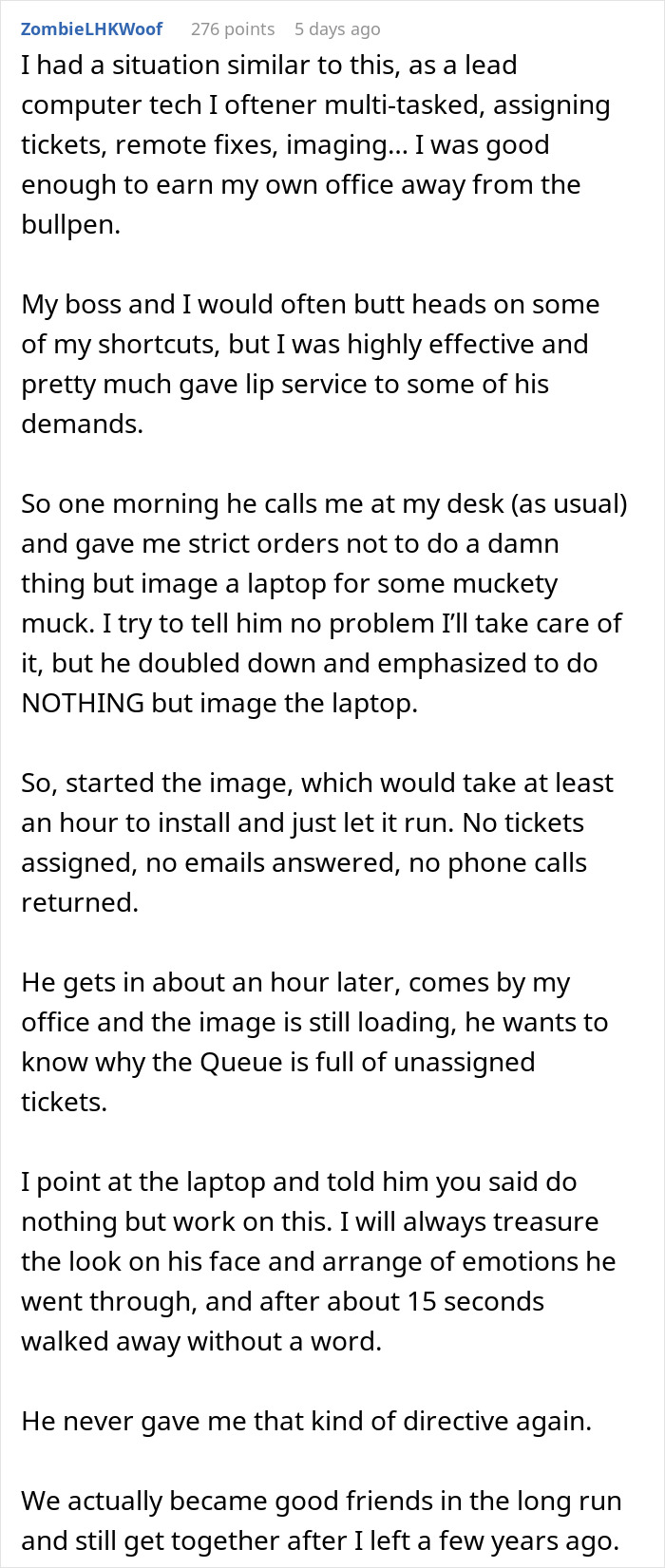


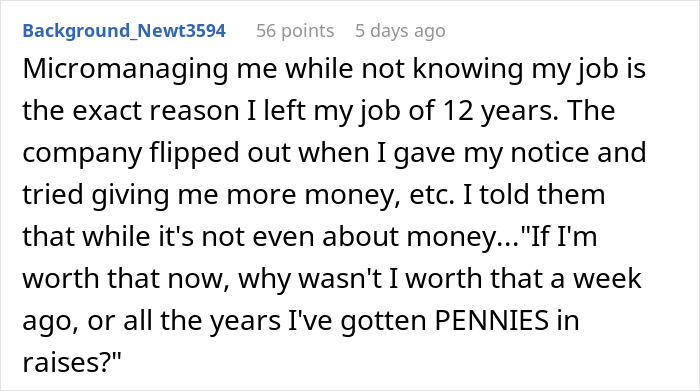


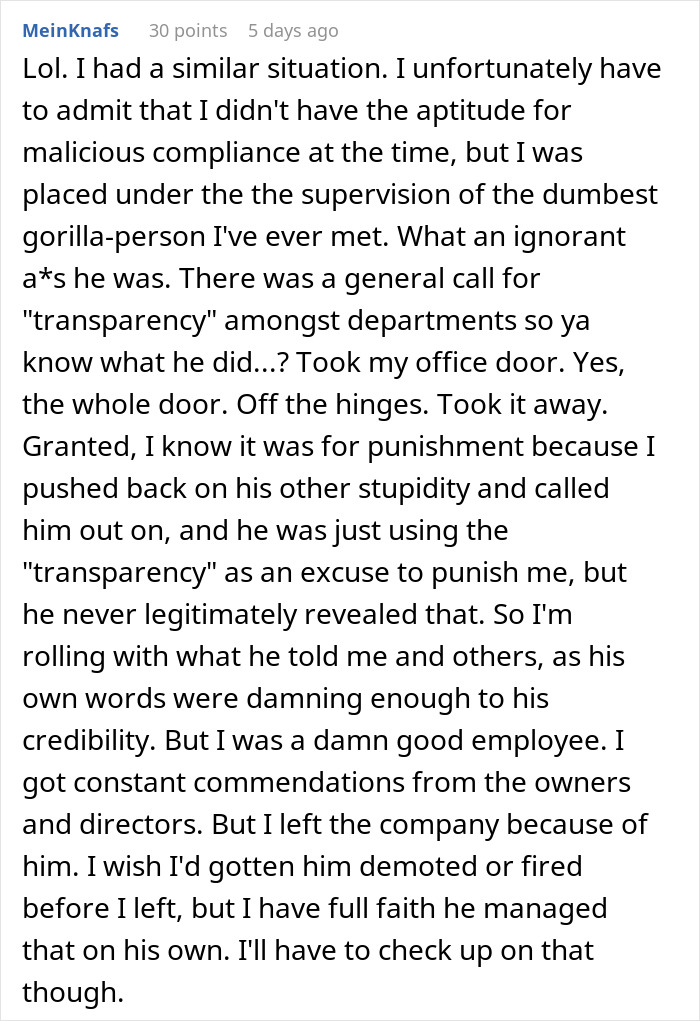



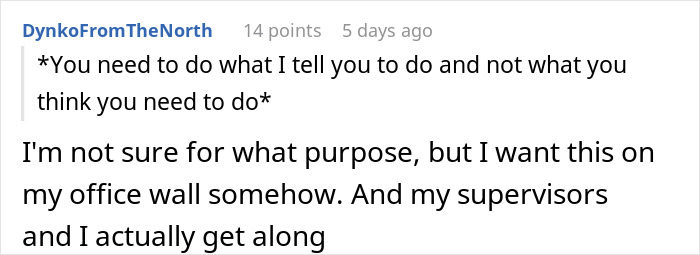



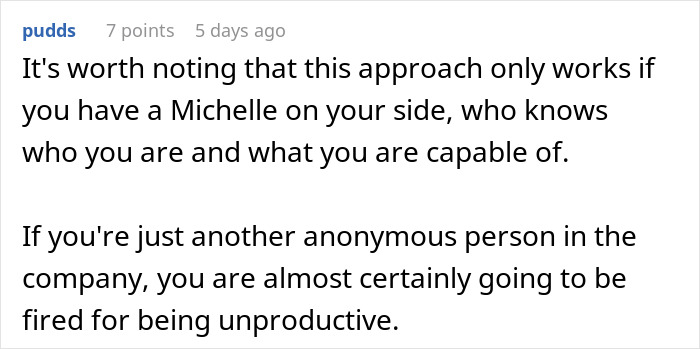













































60
10